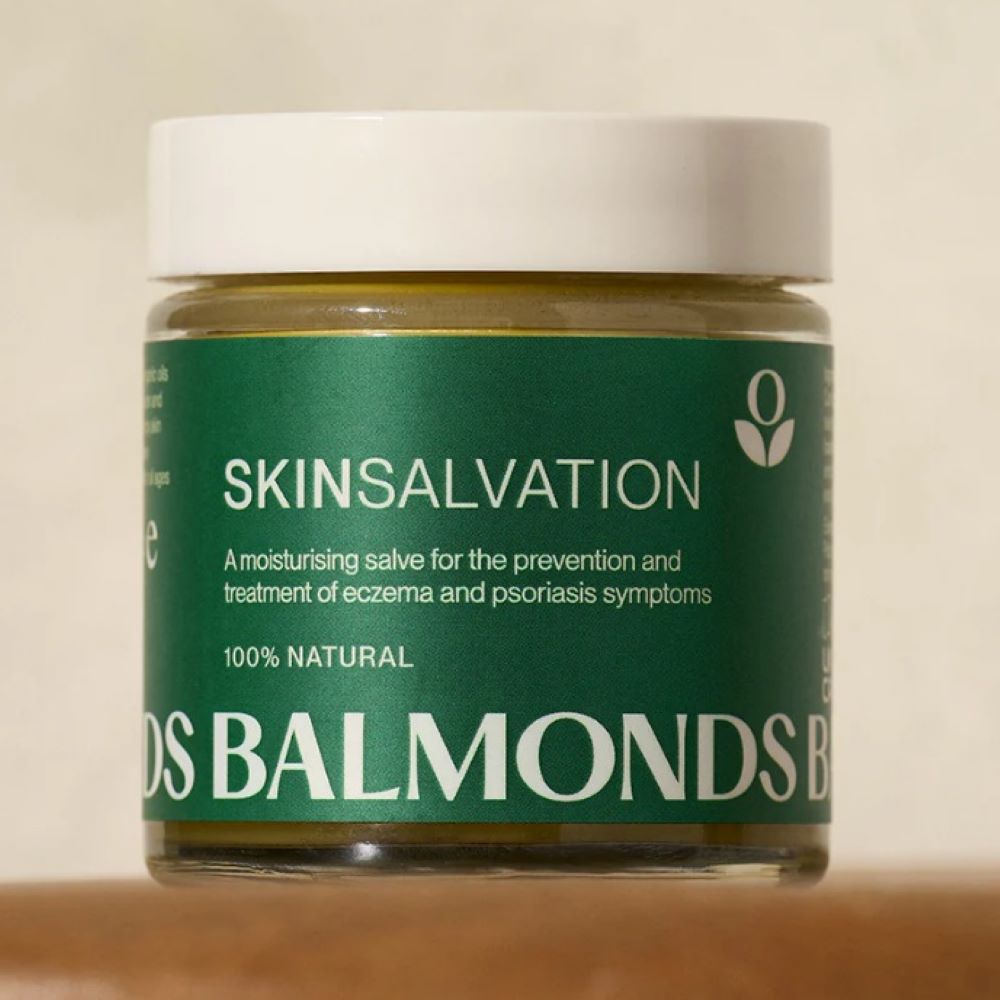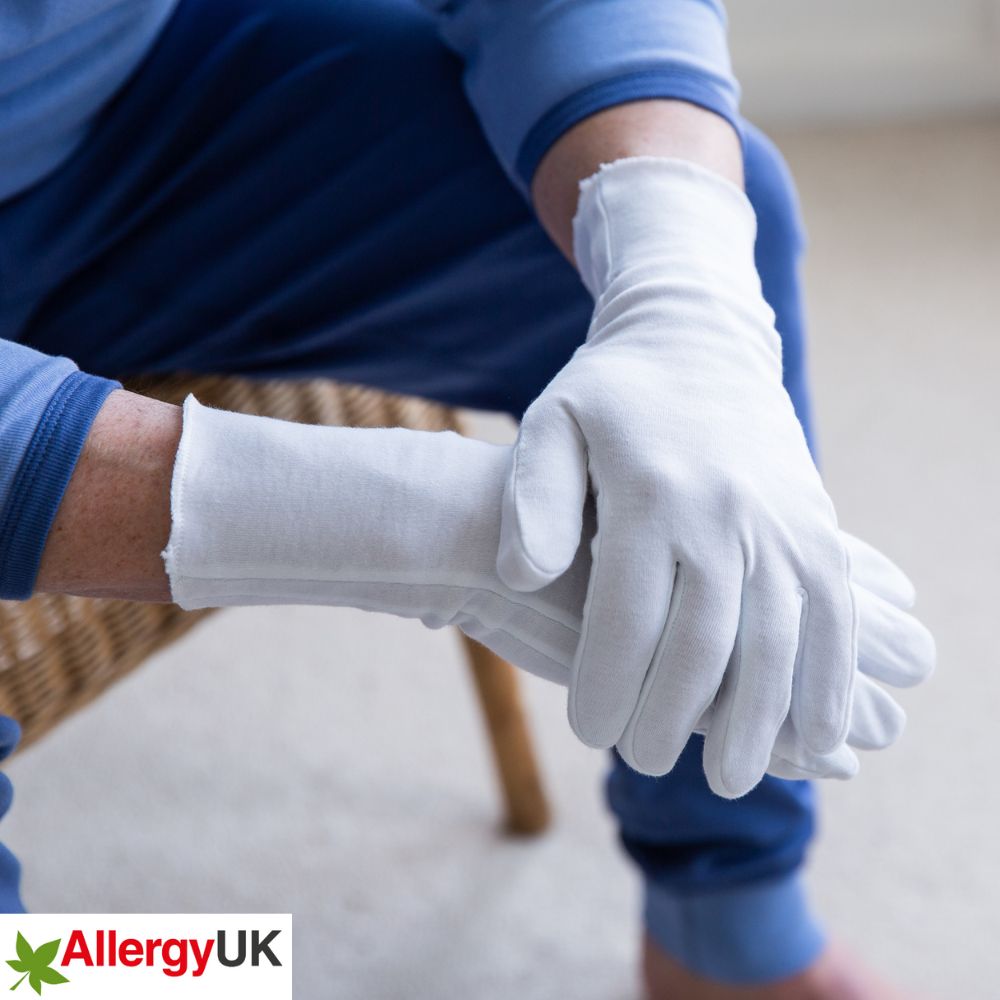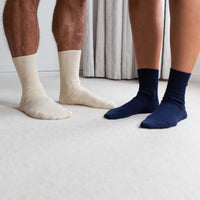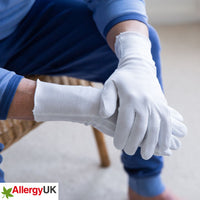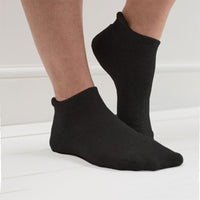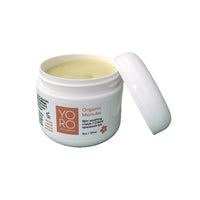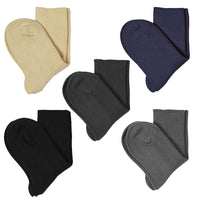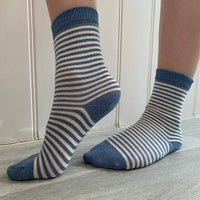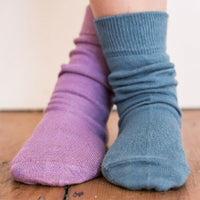
Making Sense of the Menopause
Making Sense of the Menopause
Night sweats, hot flashes, memory loss and anxiety; many women over the age of 45 will recognise these as signs of the menopause.
Greater awareness of the menopause has driven increased demand for hormone replacement therapy but with current shortages being reported the desire for other ways to manage symptoms and help women feel more comfortable has never been greater.
World Menopause Day is being held on 18 October this year to raise awareness and support options to improve the health and wellbeing for women in mid-life and beyond. Cotton Comfort’s guest blogger Anita Chakraverty looks at a few ways clothing and self-care can help.
‘The Change of Life’
It’s difficult to remember a time when the menopause has been more openly discussed. When I was younger, it was coyly referred to as ‘The Change of Life’—a mysterious condition experienced by women of a certain age that remained a social taboo.
Now, there is a growing openness about discussing this final stage of a woman’s reproductive life.
Former US First Lady Michelle Obama has publicly talked about her experience and TV presenter Davina McCall’s book Menopausing currently tops the UK Amazon bestsellers list, following on from a successful documentary last year.
When does it happen?
Women will usually enter the menopause between the ages of 45 and 55 years due to falling levels of the hormones oestrogen and progesterone, though it can happen earlier due to medical reasons such as surgery.
Night sweats are one of the best known of its 58 identified symptoms and breathable, natural fabrics such as organic cotton can make women feel more comfortable.
Choosing a colour that doesn’t show damp patches is also helpful – go for a patterned fabric or if plain stick to light (white/natural) or dark (navy/black). For example, Cotton Comfort’s 100% Organic Cotton nightwear includes both pyjamas and nighties in a range of colours.
Using cotton bedding is also advisable as synthetic fabrics will likely exacerbate night sweats.
Hot flashes can occur at any time of the day causing both physical and mental discomfort. Wearing natural fabrics that absorb moisture and sweat and that conduct heat from your body – like cotton or bamboo – can make the world of difference to these uncomfortable moments. Take a look at Cotton Comfort’s soft, pure organic cotton underwear. A recent review of their ‘Square Cut Pants’ by one customer stated they were ‘just what she needed’ to help with menopause-related symptoms ‘down below’.
Skin can also suffer greatly during the menopause, often due to declining oestrogen and its knock-on effect on the protein collagen. It may become increasingly sensitive, with a reduction in its thickness and elasticity as well as itchiness, breakouts and hyperpigmentation.
Aromatherapist and skincare expert Estella Costa dubs collagen ‘the glue that holds us together’.
She recommends moisturisers containing hyaluronic acid, explaining that this gooey substance—which is also produced naturally by the body— can draw moisture into the skin. Products containing clove and eucalyptus are good for breakouts, while lactic acid and exfoliation promote the removal of dead cells that can make the skin look dull.
Healthy eating can also be very beneficial. Medical research undertaken in 2018 implied that eating significant quantities of simple carbohydrates hastened the onset of menopause. Recommendations to delay the onset and manage symptoms include eating a diet rich in rainbow-coloured selection of fruits and vegetables, complex carbohydrates and food containing phytoestrogens such as tofu and legumes.
Avoid or limit stimulants that can cause hot flashes such as alcohol, caffeinated coffee, chocolate and spicy food.
Calcium-rich foods, such as those containing dairy, and vitamin D, which is important for calcium metabolism, are also important for maintaining bone density, as is regular exercise.
‘Drink plenty of water, use massage oils or cream on your skin daily and most of all listen to your body,’ advises Estella.
But, above all, she recommends: ‘Be yourself, love yourself, be happy.’
|
Stages of the Menopause |
Age |
Menstruation Status |
|
Premenopause |
The reproductive years |
Periods |
|
Premature menopause, premature/primary ovarian insufficiency |
Before 40 |
Infrequent or absent periods |
|
Early menopause |
Before 45 |
Infrequent or absent periods |
|
Perimenopause/menopause transition |
Usually 40s |
Changes in monthly cycle |
|
Menopause/post-menopause |
45–55 years |
No periods for at least a year |

